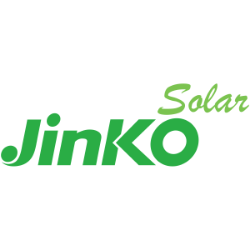
FMP

JinkoSolar Holding Co., Ltd.
JKS
NYSE
JinkoSolar Holding Co., Ltd., together with its subsidiaries, engages in the design, development, production, and marketing of photovoltaic products. The company offers solar modules, silicon wafers, solar cells, recovered silicon materials, and silicon ingots. It also provides solar system integration services; and develops commercial solar power projects. The company sells its products to distributors, project developers, system integrators, and manufacturers of solar power products under the JinkoSolar brand. As of March 31, 2022, it had an integrated annual capacity of 40 gigawatts (GW) for mono wafers; 40.0 GW for solar cells; and 50.0 GW for solar modules. The company has operations in the People's Republic of China, the United States, Mexico, Australia, Japan, United Arab Emirates, Turkey, Jordan, Vietnam, Egypt, Spain, and Germany. JinkoSolar Holding Co., Ltd. was founded in 2006 and is based in Shangrao, the People's Republic of China.
23.8 USD
-0.22 (-0.924%)
DuPont Analysis
The DuPont analysis, pioneered by the DuPont Corporation, offers a structured approach to assessing fundamental performance. It involves breaking down the return on equity (ROE) into various components, aiding investors in comprehending the factors influencing a company's returns.
ROE = Net Income / Average Total Equity
ROE = (Net Income / Sales) * (Revenue / Average Total Assets) * (Average Total Assets / Average Total Equity)
The company's tax burden is (Net income ÷ Pretax profit). This is the proportion of the company's profits retained after paying income taxes. [NI/EBT] The company's interest burden is (Pretax income ÷ EBIT). This will be 1.00 for a firm with no debt or financial leverage. [EBT/EBIT] The company's operating income margin or return on sales (ROS) is (EBIT ÷ Revenue). This is the operating income per dollar of sales. [EBIT/Revenue] The company's asset turnover (ATO) is (Revenue ÷ Average Total Assets). The company's equity multiplier is (Average Total Assets ÷ Average Total Equity). This is a measure of financial leverage. Profitability (measured by profit margin) Asset efficiency (measured by asset turnover) Financial leverage (measured by equity multiplier)